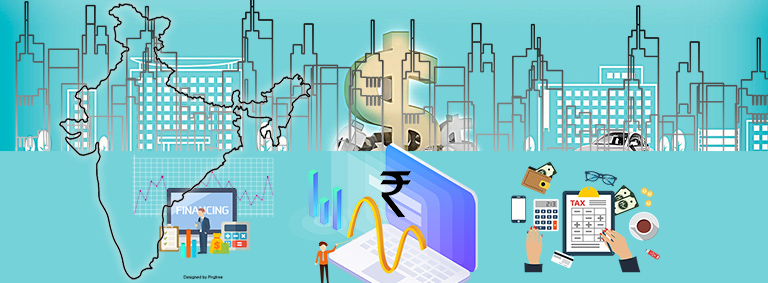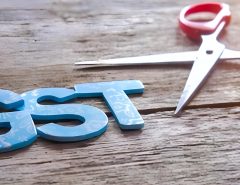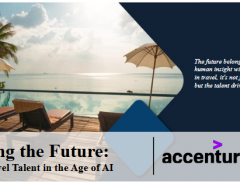It gives me great pleasure to be here today on the occasion of the Launch of the Report on ‘Blue Economy – Global Best Practices: Takeaways for India and Partner Nations’. I congratulate FICCI, India’s apex industry association for its foresight to establish a Taskforce as early as 2016, to identify contours of India’s engagement in Blue Economy, that resulted in the publication – Blue Economy Vision 2025.
The oceans carry the key to the destinies of the rapidly advancing global order. Covering 72% of the Earth’s surface and constituting over 95% of the biosphere, oceans provide a substantial portion of the world’s population with food and livelihood. 90% of the global goods trade travels via sea, and the marine and coastal environment is a big tourist attraction as well. The seabed currently provides 32% of the global supply of hydrocarbons, and oceans hold massive potential for production of renewable energy. Emerging technologies are opening up new frontiers of marine resource development, leading, among other things, to the mining of seabed mineral resources. Through the efficient harnessing of blue resources, including the deployment of new and emerging technologies, the issues of poverty, food insecurity, unemployment and ecological imbalance can be effectively tackled. Research and innovation in marine biotechnology, access to seabed resources, investment in marine ICT and proper integration of coastal tourism and other services can play a crucial role in injecting stimulus to create additional economic activities for both India and partner nations.
Considering that India has a total coastline of around 7500 km, out of which mainland coastline consists of 6100 km and islands’ coastline consists of 1197 km, touching nine states and four union territories, there is potential for Blue Economy sectors to create profitable business opportunities for coastal states of India and contribute to inclusive and diversified economic development. The leverage of Blue Economy to develop local communities along coastal India especially women and MSMEs is important. Therefore, India endorses the growth of the Blue Economy in a sustainable, inclusive and people centred manner. Blue Economy remains a critical aspect of India’s economic development agenda.
Our National Vision in this regard is clearly articulated in the term SAGAR – Security and Growth for All in the Region coined by our Prime Minister Shri Narendra Modi. PM Modi emphasised that the Blue Chakra of India’s national flag represents the potential of the Blue Economy for India. In this light, Prime Minister recently proposed an Indo Pacific Oceans Initiative to conserve and sustainably use the maritime domain and to make meaningful efforts to create a safe, secure and stable maritime domain. Focus areas of this initiative include creating partnerships among interested States in several pillars ranging from enhancing maritime security to preserving and sustainably using marine resources, building capacity, disaster prevention and management as well as working together in trade and maritime transport.
India is a rising economy and our Hon’ble Prime Minister has the vision of making India a $5 trillion economy by 2024. This needs to be backed by the goal of achieving an all-inclusive and sustainable development, which is possible through fostering and developing blue growth in the country. Responsible development of Blue Economy forms a cornerstone to the realisation of the vision for New India. This can be realised if government, industry and academia rally together with each sector of the economy and section of society to attain this common goal.
PM Modi in his speech at the 73rd Independence Day, had highlighted the importance of developing India’s maritime resources and strengthening the sectors of Blue Economy in order to reach the global market. The Government of India’s flagship Sagarmala Programme launched in March 2015, is a step forward in that direction. The National Perspective Plan of the Sagarmala Programme encompasses port-led development with a focus on infrastructure, port modernisation, connectivity, industrialisation and most importantly coastal-community development.
In terms of the international dimensions of discourse and diplomacy relating to the Blue Economy, the Ministry of External Affairs (MEA) plays a proactive role fostering International partnerships with various countries to advance India’s stance. It is quite evident that in the present times, Blue Economy is one of the most important areas of cooperation where countries of South Asia, Pacific Island Developing Countries and the West, have developed various National Strategies and Maritime Agendas to develop Blue Economy and sustainably tap the potential of ocean and sea resources in their exclusive economic zones. To harness marine resources for economic and social development in a sustainable manner, one would need to learn from the best practices of other countries and collaborate with them in terms of coastal zone management and marine spatial planning.
The importance that we attach to this subject is evident from the fact that the 3rd edition of the Track 1.5 ASEAN-India Blue Economy Workshop was hosted by India, along with Thailand, in Bangkok on September 12, 2019. The main areas of focus at the Workshop centered around sustainable harnessing of marine resources, maritime connectivity and maritime safety. Key recommendations emerging from the Workshop included setting up a database of regional fishing vessels, as well as a network for combating IUU Fishing, bringing together scholars and practitioners to disseminate ASEAN-India varied activities on the Blue Economy and finalisation of an Action Plan to implement the Blue Economy Vision, among others.At the 19th Council of Ministers Meeting of IORA, Abu Dhabi held on November 7, 2019, I had emphasized the importance of intra-IORA work on the Blue Economy and Science and Technology partnerships.
In this context, I welcome the initiative by FICCI to connect with costal states of India through the IORA platform such as the recent Second Somalia Yemen Development Programme for artisanal fisheries organised in Kochi, Kerala in November 2019. Going forward we would encourage the development of the connect between coastal states with multilateral and regional groupings in the Indo Pacific in the domain of Blue Economy.
We look forward to the forthcoming IORA programme on cruise, coastal and marine tourism to be organised in India and delivered by FICCI in partnership with MEA and IORA Secretariat during Spring 2020.
Oceans are shared commons and the development of Blue Economy would be a collective effort with deep consciousness for sustainable and responsible leverage of our ocean wealth.
As the FICCI-KAS report outlines, pockets of excellence exist in Blue Economy worldwide. For India and indeed the international community to fully leverage the benefits of Blue Economy in a resource efficient and responsible manner, success will lie in connecting the dots for economic prosperity, while preserving the common ocean wealth and heritage for future generations. In this task, I urge all stakeholders to join hands to develop Blue Economy in a balanced manner resting on three pillars of Security, Sustainability and Prosperity.
I commend the diligent work by the Core Group of Experts Chaired by Amb. Rajiv Bhatia that has produced this sterling publication. I also congratulate FICCI and their institutional partner Konrad Adenauer Foundation (KAS) who subsequently created and nurtured the second project to create a study of best practices in Blue Economy from India and abroad and conducted extensive stakeholder consultations along coastal India to engage the real beneficiaries of Blue Economy.
As an important stakeholder in the development of India’s Blue Economy through the fostering of international partnerships, my Ministry will also examine the recommendations suggested in the report.





